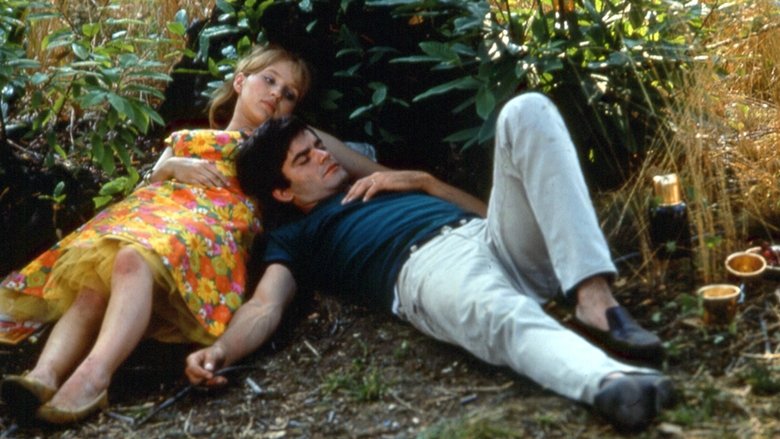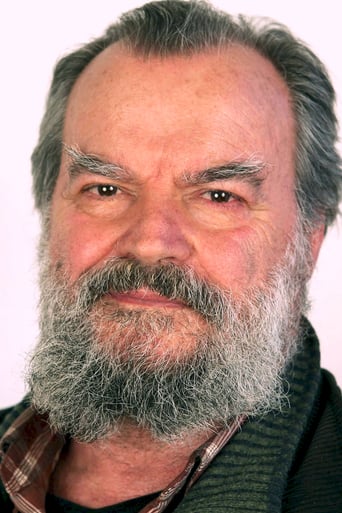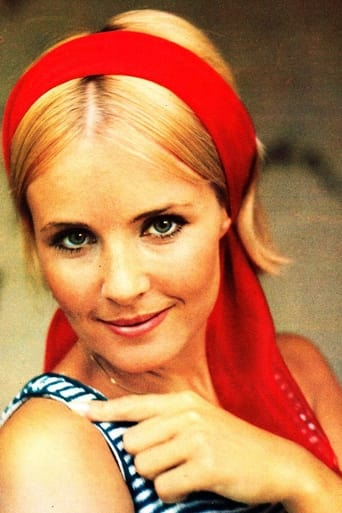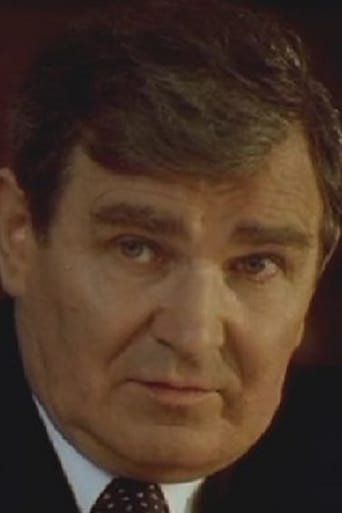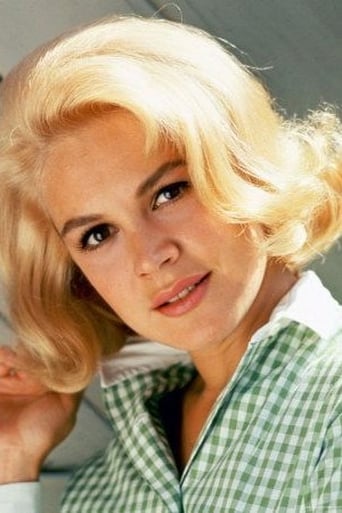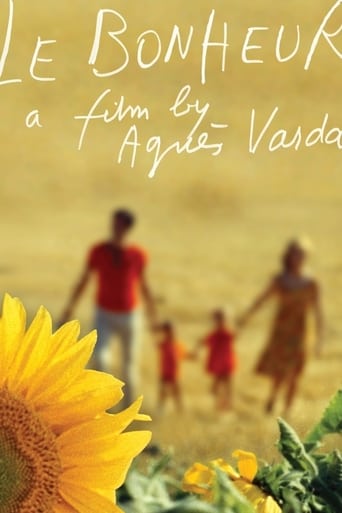
Happiness
February. 10,1965A young husband and father, perfectly content with his life, falls in love with another woman.
Similar titles

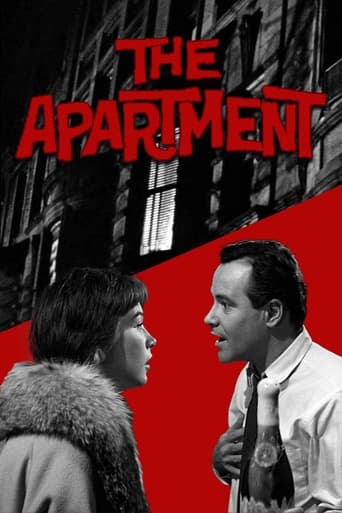


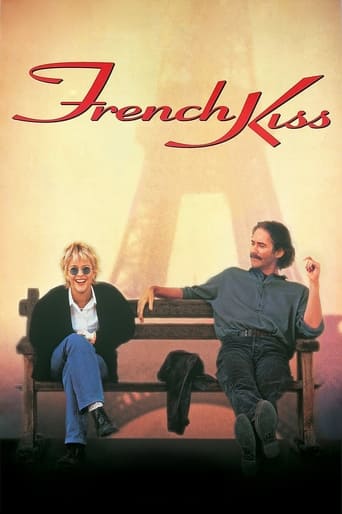
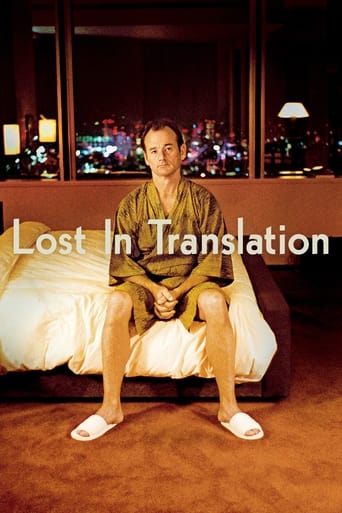


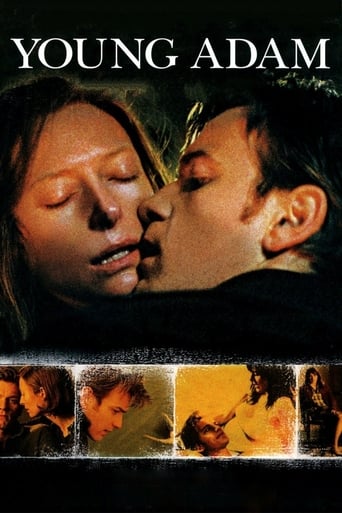
You May Also Like
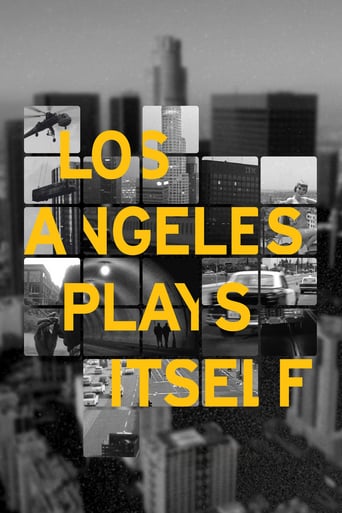
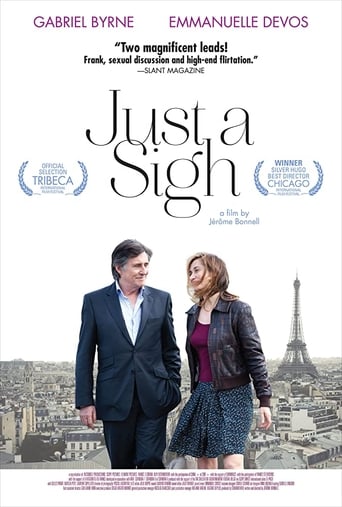
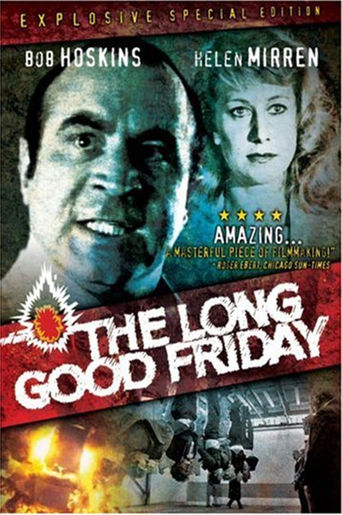
Reviews
So much average
Sadly Over-hyped
In truth, there is barely enough story here to make a film.
Blistering performances.
This goes in my list of most important works. Varda soars, showing herself to be among the masters who truly understand appearances. They're no simple thing. Image is not just the depicted thing, for those who know how to use it, it's the whole space leading up to the eye that includes the mind that we bring to it, great filmmakers try to work that space. If we arrive anywhere, it's because we walked. Lesser films comfortably carry us a little down the way, or not at all. This one will take you far and leave you there to ponder on what this new place is, but you have to walk through that space.The departure point is an idyllic happiness given to us with pastoral colors in the countryside, a husband and wife with their two kids are frolicking under the sun, everything picture perfect, a mythic eden.Now comes the journey. They drive back to the city, concrete begins to loom from the corner of the windshield, we imagine that here happiness will be tainted, life has to be more complex than everyone being happy. Our expectation is left hanging, they're still perfectly happy in their little home.Soon the man meets another woman in the phone office one day, they go on a date. We imagine that now there's going to be drama, duplicity. No dice again, the man explains to her that he loves his wife no less, that love for him only adds up to encompass both. He looks honest, she accepts it. We strain to imagine dishonesty just the same, some secret misgiving for her.There's a paean here to boundless love, love that is not ego or possessiveness but simply joy, Varda renders this as couples dancing in a tavern and freely swapping partners. Politics of love are only a small part of its appeal for me, no there's something more powerful here.So the wife queries her husband who looks even happier these days, they're back in that idyllic patch of nature, he can't lie, he confesses. Finally we expect to see heartbreak, betrayal, hurt, but again no, she looks apprehensive but quickly seems to accept it, she says she's happy that he is, they have sex, fall asleep. But when he wakes up something has happened.This is the story in a hurry, the rest when you see it.This is rife for profound meditation that goes beyond opposites. Is this happiness that we see? Or maybe a better question, where is the unhappiness? At so many points in the story we imagine drama, expect it, that is how life comes to be, and yet at every point drama is waved away. We'd like to accept a life without regrets perhaps, but do we? Immediately we have complete dismantling of the melodrama, but we have something else too.Varda has filmed a story trusting that we'll imagine all the other things, which she can leave out. She teases out only enough, a brief look of disappointment in the two women, the notion that she carried flowers down to the river. We inhabit both stories, the one we see, the other which we foreshadow behind appearances, so that all the tension becomes ours, internal. We strive to see the lying man, the betrayed wife, maybe we do. Is this happiness? Is it not? Is it?There's more than social critique here, make no mistake, or it wouldn't haunt (even more than Vertigo). It's because it makes you walk, live, through your own mind all the way to heartbreaking betrayal and you can't unlive it. In the end Varda films the last part from the river onwards as if nothing has changed between the new pair, but something has. Has it? Does he grieve? Does he not? Who is it that tells you one or the other, or that it has to be one? Or will you just see a painted parable?Something to meditate upon.
Watching this film the last time, some 45 years ago, upon it's original UK release, I was blown away. I felt I had never seen such beautiful sunny summer images, I was astonished at the use of posters and advertising hoardings for composition. I notice now that some of these aspects have coloured my own photographic sensitivities. I remember the film as one long celebration of happiness and the suggestion that with the right attitude life would be like this. Seeing it again, it is still undoubtedly beautiful and I possibly appreciate even more the wonderful cinematography, however, now I notice how subversive this movie is. I have a feeling that this is very much a personal film seen through Varda's eyes and she is suggesting that a woman might easily do as the second woman does in this without causing so much as a head to turn. I think not, this is fantasy. The guy is unreal, men don't lie around saying how happy they are all the time, never mind the way he fails to be affected by the incident. I imagine at the time I saw this as a depiction of a real possibility. I seem to remember thinking lots of things were possible in the 60s that have turned out not to be. Nevertheless, this is still a beautiful movie,
"It all adds up", says Francois to his mistress Emilie, explaining why he can love her and his wife Therese and his children equally. In her brilliant and provocative 1965 film, Le Bonheur, Agnes Varda (The Gleaners and I, Vagabond, Cleo From 5 to 7), raises the question of whether "open marriage" can work and answers it with a definite "maybe". As the film opens, a carpenter, Francois (Jean-Claude Drouot), and his young (real-life) family are experiencing a Sunday afternoon picnic in the park. Shot in pastels and making use of exquisite color fades, Ms. Varda immerses us in the flowers, trees, and lakes of the French countryside. We are lulled by Mozart's languid Clarinet Quintet, yet soon sense that something is amiss. Communication appears superficial and few feelings are expressed. This mood carries over to the scene in their apartment complex where, in a family gathering that includes aunts and uncles, not much happens in the way of conversation. When Francois is away on business, he meets an attractive telephone operator named Emilie. Soon he declares his love for her and claims that he has enough love within him to include her in his life, "I love you both and if I met you first, you would be my wife". Being honest and open, Francois tells Therese that he has loved another woman for over a month, but says that his love for her and his family remains stronger than ever. The love that Francois experiences is - the film states again and again - a natural occurrence, an addition, not a subtraction. However, Therese cannot separate herself from what has become her identity as wife and mother, leading to tragic consequences. She was, in the words of the lovely song, "Tree of Life", "only known as someone's mother, someone's daughter, or someone's wife." At the end of the film, Mozart's Clarinet Quintet is replaced by the darker Adagio and Fugue in C Minor. Francois replaces one woman with another and continues his life without reflection, guilt, or self-doubt. In Le Bonheur, the characters are painfully pure and do not question their actions. Perhaps Ms.Varda is saying that, for Francois, happiness is seamless, that it will continue regardless, and that, in his world, people are simply viewed as interchangeable parts. In Varda's words, happiness is "a beautiful fruit that tastes of cruelty". Agnès Varda's has said, "In my films, I always wanted to make people see deeply. I don't want to show things, but to give people the desire to see". One of the seminal works of the French New Wave, Le Bonheur was audacious in its day and still leaves us unsettled, 37 years later, yet able to see more deeply.
Similar in many ways to the fantastic "Cléo de 5 à 7", a charming, mature and playful look at temptation and marriage.Not only great for it's chromatic & musical scales (color-fades, very colorful scenes are organized like moments withing a musical composition), the dialogues are right on as well - at first, it might seem a little 'sappy', but with 15minutes, you're enraptured!
Top Streaming Movies











